Just For Talks: 4 Ways How The Before Trilogy Casually Challenges Conventional Filmmaking Truths
If something seemingly unlikely ends up being brilliant, it's usually because at it's core, there's really nothing unlikely about it.
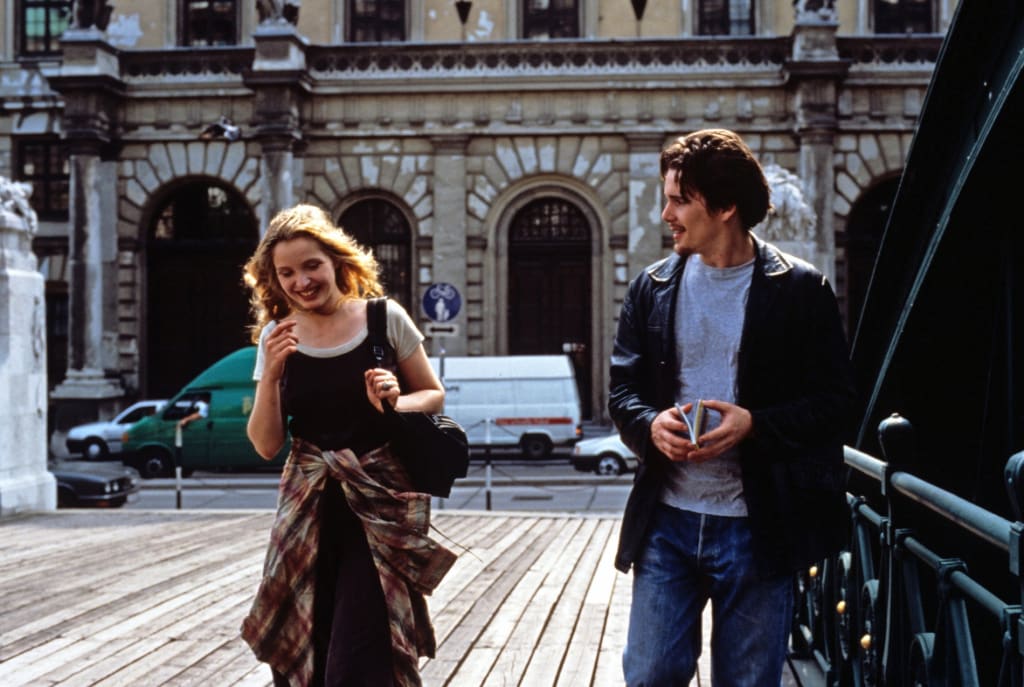
Whenever feeling underwhelmed or emotionally detached from a film, it's perfectly natural for one's mind to wander towards the ones that got it absolutely right. Only thing, in my case, that often means thinking about a trilogy of films that themselves seem to go against many of the conventional filmmaking wisdoms of "getting it right": the Before trilogy.
I mean, they're just three movies of two people talking to each other and yet, as it's stands, these 3 conversations between Jesse (Ethan Hawke) and Céline (Julie Delpy) arguably make up for one of the most critically acclaimed and consistently engaging film franchises ever. And, well, that made me think. If something so seemingly unlikely can succeed, where so many fail, what does it tell us about filmmaking and cinematic storytelling in general? Well, as the characters in these films like to do, I figured I'd ramble about it a bit.
1. Low on stakes doesn't mean low on emotions
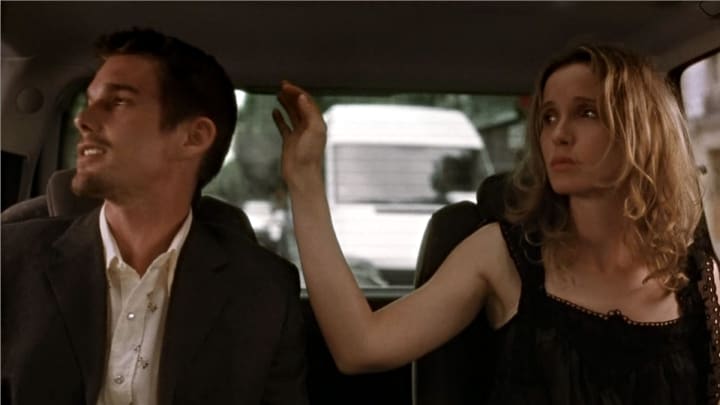
I’ve never been in a plane crash, I’ve never been involved in any government espionage. I’ve never had a machine gun fired at me, yet my life’s been full of drama. The most dramatic thing that’s ever happened to me is actually connecting to another human being. - Richard Linklater
Plot obviously matters. A movie needs structure. And there has to be some stakes as well, otherwise there's no engagement. So, how does a trilogy that at least in a more classical sense hasn't got much of either excel in engaging and making it all feel meaningful? Well, simply put, because more often than not, where a movie really captures us, is within it's characters and themes.
Now, what makes the Before trilogy fascinating in this aspect is that those two elements are essentially all it's got going for it anyway. The key here, however, is that all three films are created with an understanding that this is all they really need. Nothing more, nothing less. Just a singular focus on the one thing it was ever really about: these two human beings and this little space in between.
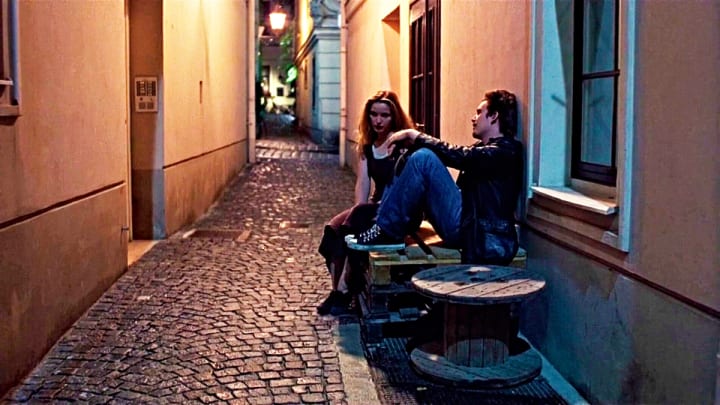
Granted, it's not like these films are void of any plot, structure and stakes completely. All three ceritnaly have a central dramatic question hidden within and Before Sunset even has a cool little ticking clock dynamic going on. It's just that, well, it's always the bare minimum needed to facilitate these relatable, often genuinely funny and engaging conversations about life that stemmed from this organic writing process between Delpy, Hawke and Linklater. In other words, what this trilogy symbolises, is a case of truly understanding it's own core and then unapologetically throwing everything else that could shade it out.
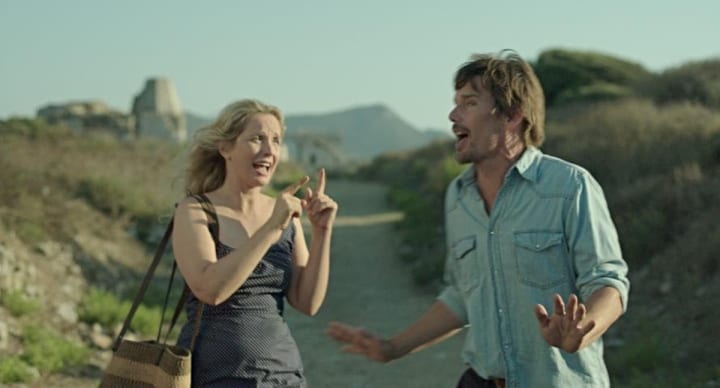
And, well, that is actually quite helpful in understanding why so many technically and structurally bulletproof movies often fail to engage. In case of romantic comedies for example, those that usually fail to register a profound beat, are the ones that get lost in this will-they-won't-they question (and whatever elaborate plot device created to facilitate it) instead of actually having fun with and exploring the characters that lay at the heart of it.
Perhaps more interestingly, however, this is also why some seemingly below bar movies end up working unexpectedly well. Take the unexpected success and enduring appeal of the original American Pie for example. Yes, in essence, it's just another late '90s/early '00s pop punk laden dumb teen comedy (not necessarily a bad thing) that just happened to have a pitch perfect cast and a bit sharper comedic writing than most of it's contemporaries.
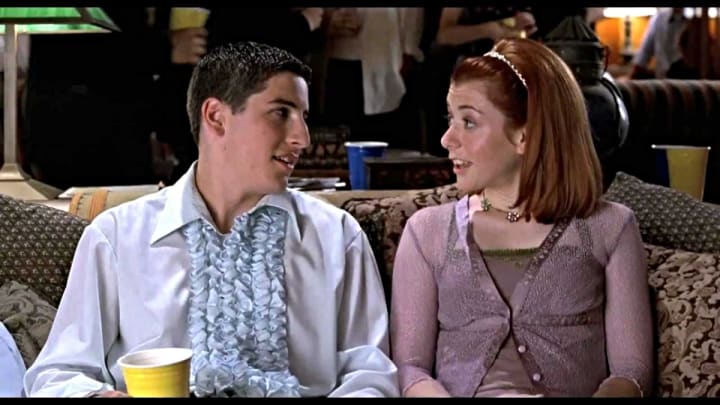
Yet, I recon that a big reason why it not only became a sleeper hit but actually ended up producing a consistently strong little franchise (excluding the spinoffs here), is because how confidently it chose to ignore pretty much everything else but these two above mentioned strengths. Much like the Before trilogy (although obviously for very different purposes), it knew what it truly had going for it, cut out the unnecessary melodrama and just focused on it's likeable characters and humor.
2. You don't always need to have a pay-off
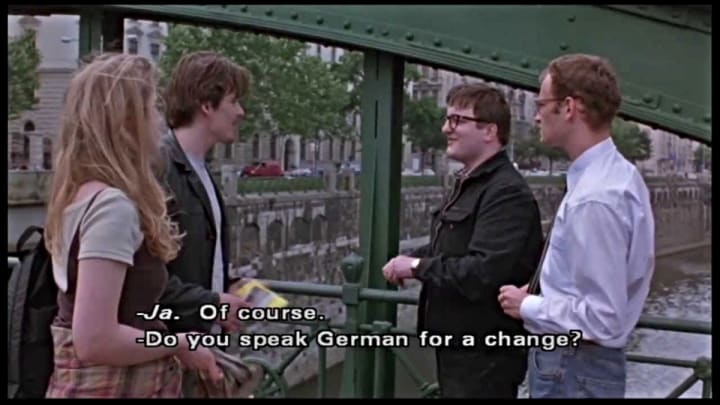
In Before Sunrise, near the beginning of Jesse's and Céline's little aimless trip in Vienna, they meet these two local theatre guys from whom they ask some advice on what is there to do in the city. As they converse, these guys invite them to a play they are involved with that takes place during the evening of that same day. End of scene. Fast forward to one of the final scenes of the film, where Jesse and Céline remember that they totally forgot about the play and casually laugh it off.
Now, if one was to approach it from classical storytelling point of view, you could ask why was this play and these two blokes involved within the story in the first place? Why set up an event in the beginning of the movie, only to just briefly mention it in the ending about how unimportant it was? Simply put, because in life, everything doesn't always have a "pay-off". And, well, for a franchise that pretty much lives or dies by it's authenticity and relatability, you need to have these little narrative dead ends here and there. It can be as major as the example above or as minor as a character messing up a sentence or just noticing a few goats.
However, things like that also add an equal bit of immersion to big blockbusters. Just think of the famous stormtrooper hitting his head moment in Star Wars: A New Hope or Heath Ledger's genuine in-character reaction during the hospital scene in The Dark Knight, when last of the explosives doesn't go off as planned in the script (and his subsequent in-character reaction to when it finally does).
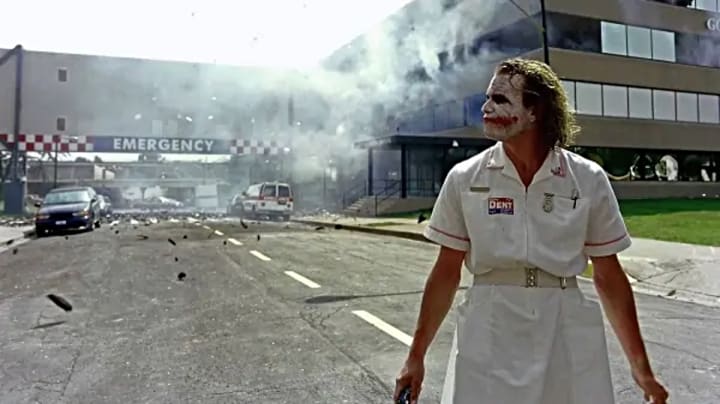
Now, granted, that both of those cases were obviously movie mistakes that were integrated into the film. Yet, in their own small way, they undeniably added color and realness to these high concept situations. That, however, does seem like an easy thing to forget, when trying to create a tightly knit and well thought out story.
3. "Show, don't tell!" doesn't mean one can't focus on telling
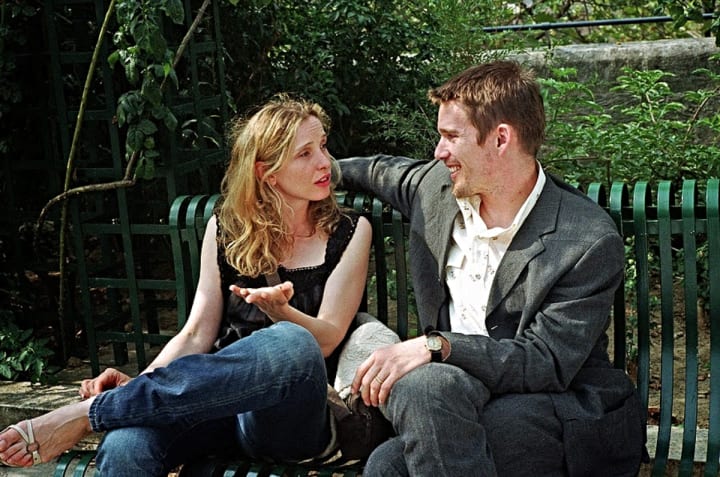
Now, at first glance, the Before movies almost seem like a little rebellion against one of the oldest adages in filmmaking: "Show, don't tell". Yet, when looking closer, it becomes clear that even when filming a conversation, there's still so much to show. It can be as small as a perfectly captured look or a gesture the character makes or as general as the way different locations are filmed and how naturally the conversation flows through them.
The key here is understanding that you can build a film around anything that is emotionally engaging even it it's something as visually mundane as a conversation. In fact, this relatively limited playing field is all the more reason to work hard on finding these little moments of visual brilliance. Otherwise, you're just not going to do justice to the great conversation you've written at the centre of it all.
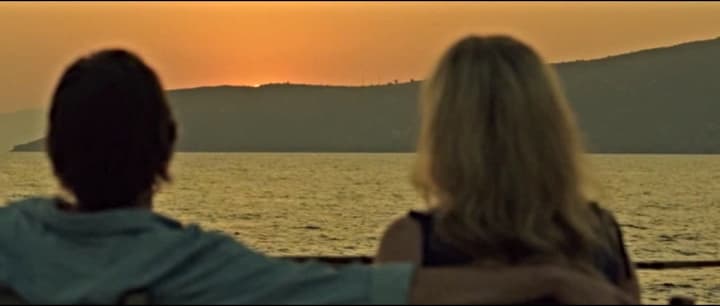
Once again, this also rings true to bigger movies as well. Take the beach scene from Indiana Jones and the Last Crusade for example. Simply put, beneath this adventure, it's very much a story about the complicated relationship between Indy and his dad. They fight, they bicker and have their issues. Yet, following Jones senior's rather poetic reaction to scaring a bunch of seagulls into pacifying a plane that was chasing them, there's this little warm look Indy gives his dad. And, well, without any dialogue, that kind of tells you all you need to know about how he feels towards his dad deep down.
4. A singular artistic vision isn't always a way to go
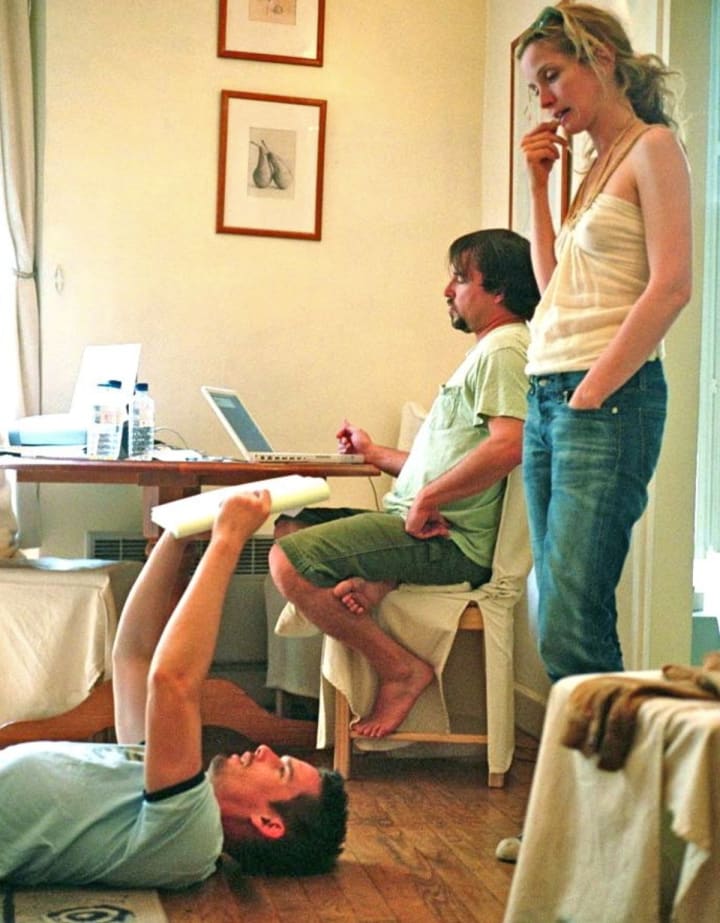
It's quite understandable, when a filmmaker—especially someone as independent as Richard Linklater—would insist on holding on to his or her original vision and bringing it to life as purely as possible. Yet, sometimes, you just can't bring it to life alone.
In fact, the Before trilogy is perhaps the best example of something that really only could have worked as a tightly knit collaborative effort. In other words, Linklater finding formidable writing partners in Delpy and Hawke and making them his equals in the writing process, was probably the most crucial creative decision that was made on this unplanned franchise.
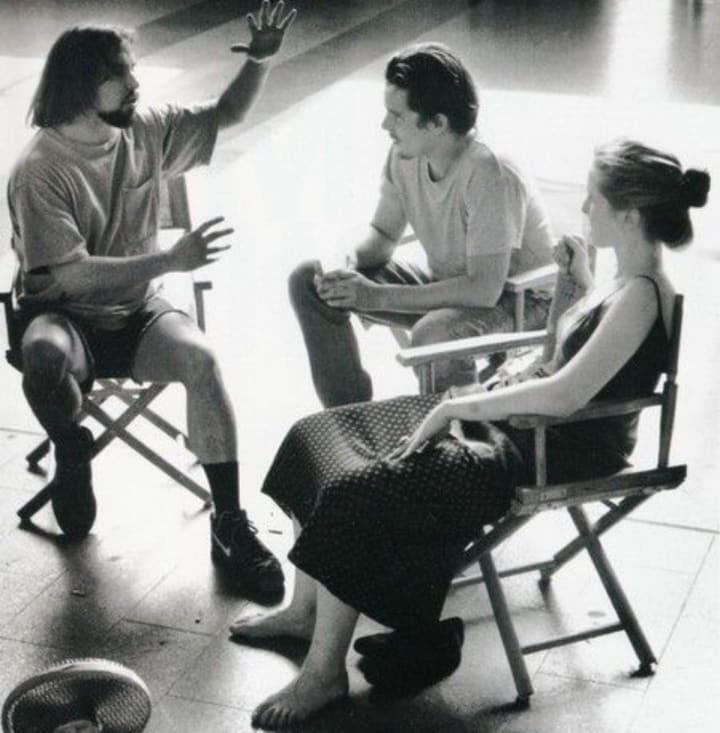
On the one hand, it's basic logic. How could you write something honest and relatable where 50% of the dialogue is from the point of view of lets say a french woman, without having a strong writer on board, who is in fact female and french. However, ironically enough, by having these different perspectives (and the honesty that comes along with it), it actually becomes easier to focus on this connection between two human beings and not worry about stereotypes and clichés.
This is probably also why it is so easy to relate to both Jesse and Céline (not just the one, whose perspective is closer to you) and why recommending these films feels like recommending a great conversation. If that makes any sense.
To sum up
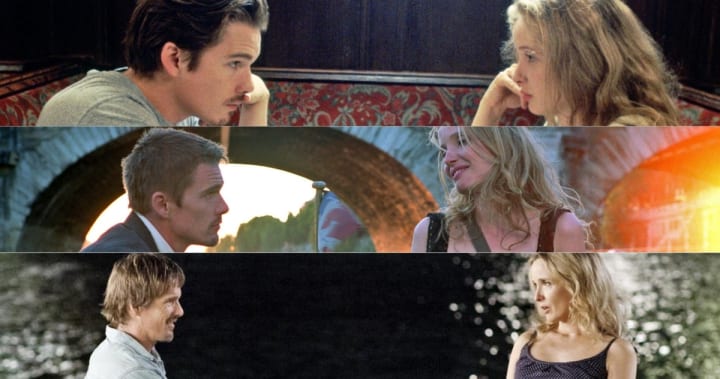
So, I suppose the main moviemaking wisdom that Before trilogy teaches us is that, when you have something truly special and honest you want to share, it's not anymore about whether people think it can be made into a movie, but rather, it simply becomes about pulling out all the stops to do it justice, while you're bringing it to life regardless.
About the Creator
Art-Peeter Roosve
So, to put it simply (and slightly cheesily) I'm fascinated with life. And, well, writing about films, TV shows, video games, music, travelling, philosophy and Formula 1 among other is a fun way to explore it.




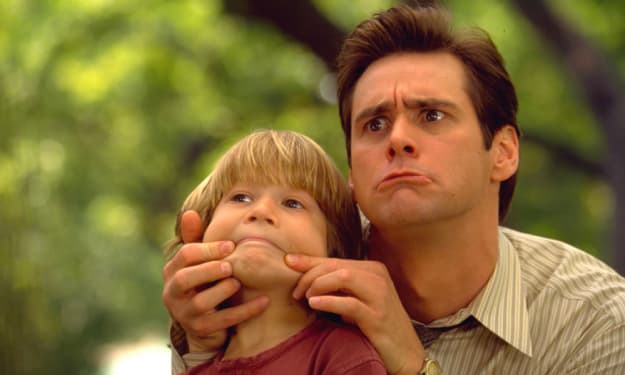

Comments
There are no comments for this story
Be the first to respond and start the conversation.